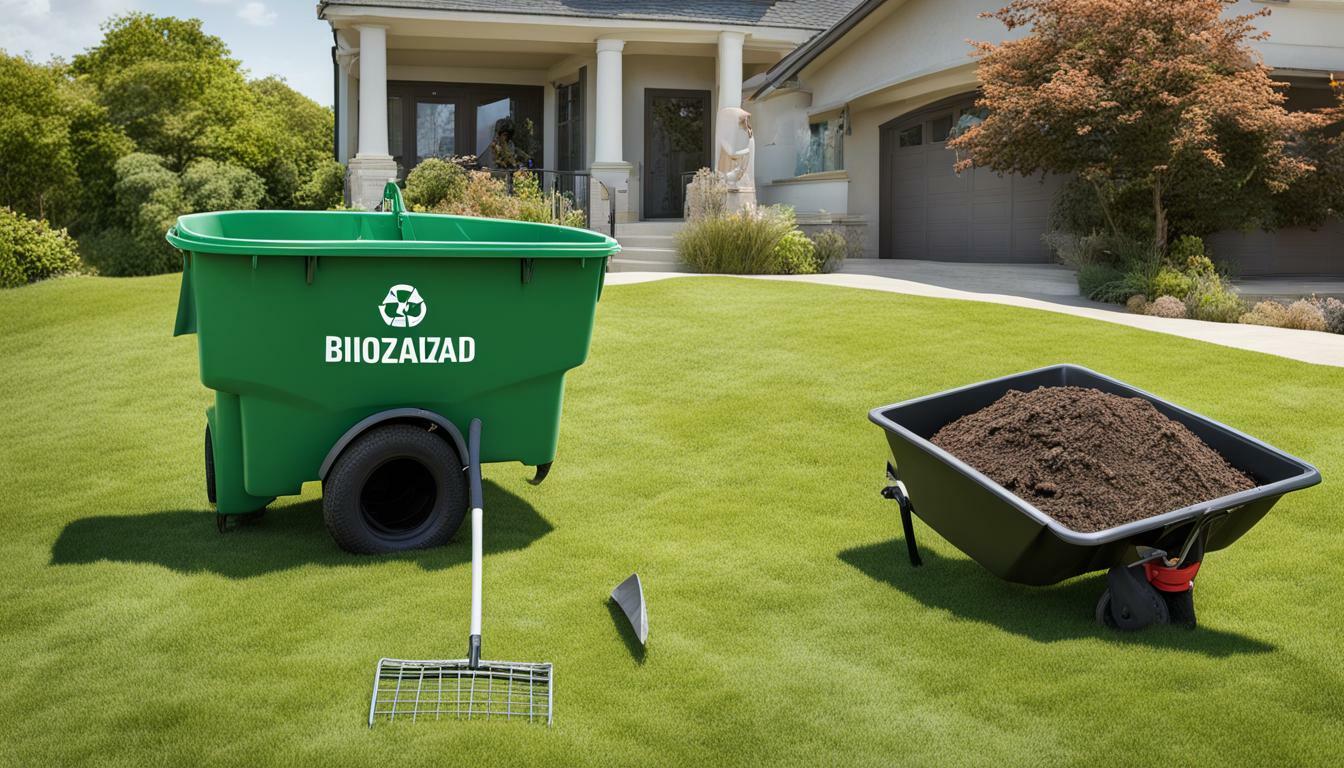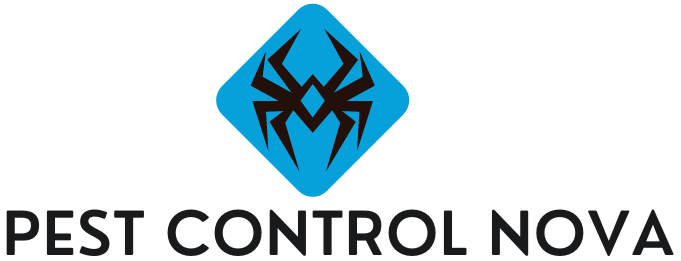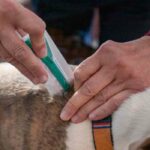
If you love animals, have a passion for cleanliness, and are looking to start your own business, an animal waste removal business might be the perfect fit for you. Proper animal waste management not only keeps our environment clean but also prevents the spread of diseases.
Starting an animal waste removal business is a great way to provide a valuable service to pet owners in your community while also generating a sustainable income. However, starting any business requires careful planning and consideration. In this section, I will provide an overview of the key steps involved in starting an animal waste removal business, including the potential market and the importance of animal waste management.
Key Takeaways:
- Animal waste removal business is a valuable service in maintaining a clean environment and preventing the spread of diseases.
- The potential market for animal waste removal businesses is significant, with a growing number of pet owners who prioritize cleanliness and hygiene.
- Effective animal waste management is essential, not only for the health and well-being of pets but also for the prevention of environmental contamination and the spread of diseases.
- Starting an animal waste removal business requires careful planning, consideration of legal requirements, and developing a competitive pricing strategy.
Understanding the Animal Waste Removal Industry
Before diving into the process of starting an animal waste removal business, it is important to have a comprehensive understanding of the industry. The animal waste industry serves the growing demand for proper management and disposal of pet waste. The pet waste removal market is fueled by pet owners who are increasingly aware of the environmental and health hazards associated with animal waste.
However, it is important to note that the industry is heavily regulated due to the potential environmental and health risks posed by animal waste. Waste management regulations may vary by state, county, and even city, and it is essential to have a solid understanding of the legal requirements in your area.
| Key Points | Description |
|---|---|
| Animal waste industry | The animal waste industry serves the growing demand for proper management and disposal of pet waste. |
| Pet waste removal market | The pet waste removal market is fueled by pet owners who are increasingly aware of the environmental and health hazards associated with animal waste. |
| Waste management regulations | The animal waste industry is heavily regulated due to the potential environmental and health risks posed by animal waste. Waste management regulations may vary by state, county, and even city. |
Aspiring entrepreneurs should also familiarize themselves with potential challenges within the industry, such as competition from established players and the seasonal nature of the business. Pet owners may be more likely to require pet waste removal services during the warmer months, meaning operators will experience a fluctuation in demand throughout the year.
Overall, understanding the animal waste removal industry is essential to making informed decisions when starting and growing a business. With a solid understanding of the industry, entrepreneurs can tailor their services to meet the unique needs of their local market, ensure legal compliance, and position themselves for long-term success.
Essential Steps for Starting an Animal Waste Removal Business
Starting an animal waste removal business requires extensive planning and preparation. In this section, I will guide you through the essential steps involved in setting up your own business.
Create a Business Plan
A business plan is a critical component of any successful business venture. It outlines your goals, strategies, and financial projections, serving as a roadmap for your business. Your business plan should include:
- A description of your business and services
- Market analysis and competitive research
- Financial projections and budgeting
- Marketing strategies and customer acquisition plans
Obtain Necessary Licenses and Permits
Starting an animal waste removal business requires obtaining necessary licenses and permits. This may vary depending on your location, but common requirements include a business license, tax registration, and waste management certification. It is essential to research and comply with all legal requirements to avoid any fines or legal issues.
Acquire the Right Equipment
The right equipment is necessary for efficient and effective animal waste removal. Some essential items include waste bags, gloves, safety gear, and a reliable transportation vehicle. You may also need specialized equipment, such as a pet waste vacuum for larger commercial properties.
Develop a Competitive Pricing Strategy
It is essential to develop a competitive pricing strategy to attract and retain customers. Research the pricing structure of your competitors and set a pricing strategy that aligns with your business goals. Consider offering discounts for regular customers or bundled services to incentivize customer loyalty.
By following these essential steps, you can effectively set up your own animal waste removal business and lay the foundation for long-term success.
Marketing and Growing Your Animal Waste Removal Business
Once your animal waste removal business is up and running, it’s essential to have an effective marketing strategy in place to reach your target audience and build your customer base. To develop a successful marketing plan, I suggest considering the following:
Identify your target audience:
Understanding your target audience’s needs, preferences and behaviors is essential for crafting relevant marketing messages that resonate with them. Consider factors such as age, income, location, and pet ownership status to zero in on your ideal customer base.
Explore advertising options:
There are several advertising options available to promote your business, including online ads, social media advertising, and print media. Consider which options align best with your target audience and budget to maximize the effectiveness of your advertising efforts.
Emphasize customer retention:
Repeat customers are key to the long-term success of your business. To encourage customer loyalty, make sure to provide exceptional service and offer incentives such as loyalty programs and referral rewards. Additionally, soliciting feedback from customers and addressing their concerns can help build trust and strengthen relationships.
Consider scaling and expanding:
As your business grows, consider expanding your services to reach new markets or increase revenue streams. This could include offering additional services such as lawn care or snow removal or expanding your service area to neighboring communities.
By implementing a thoughtful marketing strategy, you can build a strong customer base and position your animal waste removal business for long-term success.
Conclusion
In conclusion, starting an animal waste removal business can be a lucrative and rewarding venture. By providing a valuable service to pet owners and promoting responsible waste management, you can make a positive impact in your community while building a successful business.
To ensure success in this industry, it’s important to focus on providing exceptional service, staying up-to-date with industry trends, and continually adapting to meet the evolving needs of your customers. By implementing effective marketing strategies, identifying and targeting your ideal customer base, and prioritizing customer satisfaction, you can set yourself apart from the competition and establish a strong reputation in the animal waste management industry.
As you embark on this journey, remember to stay organized, invest in high-quality equipment, and develop a competitive pricing strategy. And most importantly, don’t be afraid to ask for help when you need it. With dedication, hard work, and a passion for promoting responsible waste management, you can achieve success in the animal waste removal business.
Thank you for reading this guide, and we wish you the best of luck in your entrepreneurial endeavors!
FAQ
Q: What are the legal requirements for starting an animal waste removal business?
A: Legal requirements for starting an animal waste removal business vary depending on the location. Generally, you will need to register your business, obtain necessary permits and licenses, and comply with waste management regulations. It is advisable to consult with local authorities and an attorney to ensure full compliance.
Q: How should I price my animal waste removal services?
A: Pricing your animal waste removal services can depend on factors such as the size of the area to be cleaned, the frequency of service, and the level of competition in your market. It is important to research what other companies are charging, consider your costs and desired profit margin, and also take into account the value you are providing to your customers.
Q: What equipment do I need to start an animal waste removal business?
A: The essential equipment for starting an animal waste removal business includes waste disposal bags, scoopers or rakes, gloves, and cleaning solutions. Depending on your business model and the scale of your operations, you may also require a vehicle for transportation and storage containers for waste collection. It is important to invest in durable and reliable equipment to ensure efficient and hygienic waste removal.
Q: How can I effectively market my animal waste removal business?
A: Effective marketing strategies for an animal waste removal business include identifying your target audience, promoting your services through online and offline channels, leveraging social media platforms, and offering incentives for customer referrals. It is also crucial to provide exceptional service to build a strong reputation and encourage positive word-of-mouth recommendations.
Q: How can I grow my animal waste removal business?
A: To grow your animal waste removal business, you can explore opportunities for expansion such as offering additional services like lawn maintenance or pet sitting, targeting new customer segments, and establishing partnerships with local veterinarians or pet supply stores. It is important to continually assess market trends, adapt to customer needs, and invest in employee training and operational efficiency.
- Does Flea Treatment Kill Lice? - September 8, 2023
- Does Flea Treatment Kill Mites? - September 8, 2023
- How to Put Flea Treatment on a Dog? - September 8, 2023






